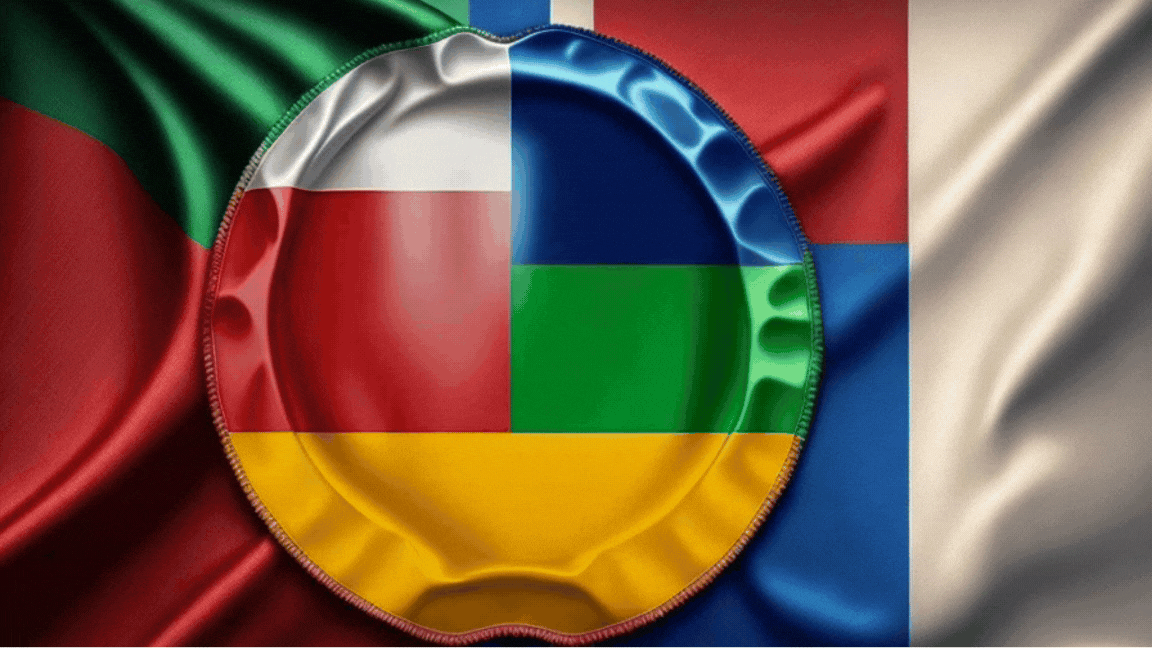
Ecuador
AP focuses on an interesting fact about the elections in Ecuador: if we were to take it as if it were a candidate, the null vote was the third most voted option in last Sunday's presidential elections, only behind the two candidates going to the second round on April 13. Here there is a critical electoral capital made up of individuals disgusted by the political moment the country is going through, and that the candidates of the ruling party and correísmo, respectively, will try to attract to their ranks. “The system does not represent me, the State does not represent me, I am [an] anarchist [whose] way of doing politics is not to delegate the vote or power to anyone,” a political activist told AP. “What they are proposing to us now for the second round is to choose between a sick, stale populism and a new band of tiktokers empty of content: both are hollow... We are not choosing, we are [picking] the lesser evil and that is inadmissible,” he added in a harsh and blunt tone. “Nobody solves things, we poor people are still poor, there are no job opportunities or development,” said for his part a merchant. “They, [the candidates], have their selfish interests where the people are not the priority.”
Leonidas Iza, an Indigenous candidate critical of extractivism, harvested more than 535,800 votes, 1.56 percentage points below the null vote option, which, so far, with only 0.27% of the tallies still to be counted, accumulates close to 7% of the total. The distance that the current head of Carondelet, Daniel Noboa, has over Rafael Correa's political heir, lawyer Luisa Gonzalez, is only 16,678 votes, which represents only a 0.17% advantage. Gonzalez was the favorite in the 2023 emergency elections, but certain political turbulences made Noboa gain momentum at the zero hour. Thus, the citizenry elected two millionaires consecutively—a banker and an heir to a banana empire—to take the reins of the country. Now the roles were reversed but correísmo performed well above the forecasts, and has a potential alliance with Iza in its sights, although it must commit to fulfilling certain environmental goals that the indigenous leader has set as a red line. In any case, either candidate has a hard time convincing voters like a 52-year-old female lawyer also approached by AP. “The uncertainty and distrust are great and it is really difficult to change my null vote,” she said.
Noboa moves the State´s machinery. More information about the changes here.
#Ecuador president names new finance minister, confirms interim oil minister #oott https://t.co/l5aVMjdjWz
February 13, 2025— Giovanni Staunovo🛢 (@staunovo)
Possible financial implications of the above and future potential 👇
President Daniel Noboa replaced Finance Minister Juan Carlos Vega, architect of Ecuador’s latest deal with the International Monetary Fund, further unnerving investors. https://t.co/2Hd3PYLSMk
February 13, 2025— Gonzalo Maldonado (@GFMABest)
But, in the meantime, the insecurity does not abate 👇.
On Ecuador's lawless southwest coast, drug gangs operate with impunity, and terrified residents ask if their president's "iron fist" security policies are just words.https://t.co/d94O1A9r0p by @AndrewBeatty pic.twitter.com/Nl1Ixa6RC6
February 13, 2025— AFP News Agency (@AFP)
The Latin American migration drama, via X 👇.
The U.S. is deporting unauthorized migrants from nations in Africa and Asia to Panama, a major diplomatic breakthrough for the Trump administration's mass deportation efforts, internal federal documents obtained by CBS News show. https://t.co/bQiwXb5yZl
February 13, 2025— CBS News (@CBSNews)
Dozens of migrants, mostly Venezuelans, in limbo due to evolving immigration policies, are stuck at the Costa Rica-Panama border, with many demanding permission for free transit through Panama in hopes of returning to their homeland pic.twitter.com/J8CuaGXxz9
February 13, 2025— Reuters (@Reuters)
A Cuban female architect who was stranded with her partner, a doctor, in Mexico, says they cannot work in their fields because their Cuban grades are not recognized there. The Cuban professional for now is washing dishes in a market.
"With doors closed to the US, asylum-seekers turn to their Plan B: A new life in Mexico" https://t.co/MhS0ZOW4fk, @AP
February 13, 2025— Amb. Arturo Sarukhan (@Arturo_Sarukhan)


"Threshold" or "segment" might have worked nicely here for "capital".
"extractivism" in Ecuador was a suprisingly widely documented condition.
https://carnegieendowment.org/research/2021/09/chinese-mining-and-indigenous-resistance-in-ecuador?lang=en
Posted using Political Hive
Thanks for this sound feedback. Look I liked to use capital there, it was intentional, but for sure your suggestions could be good as well and maybe better. Interesting the research you share from the Carnegie Endowment organization. I know about it because of its ties with NED and specifically because of some work against Cuba in the "democracy promotion" business (with Richard Youngs as the main actor).
I need to build a better cognitive map of politics in Southern and Central America. My intuition is that some dynamics will change in the next few years and the United States will look southward for better mutual relationships.